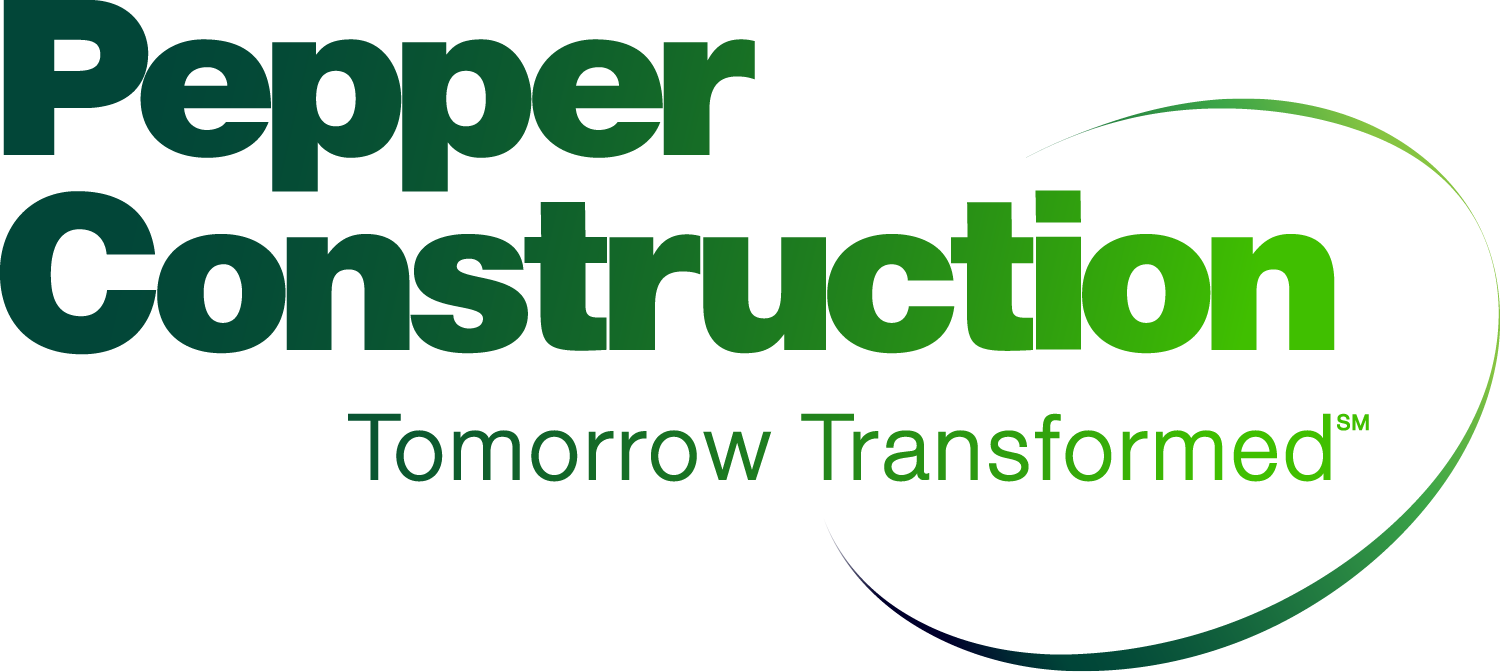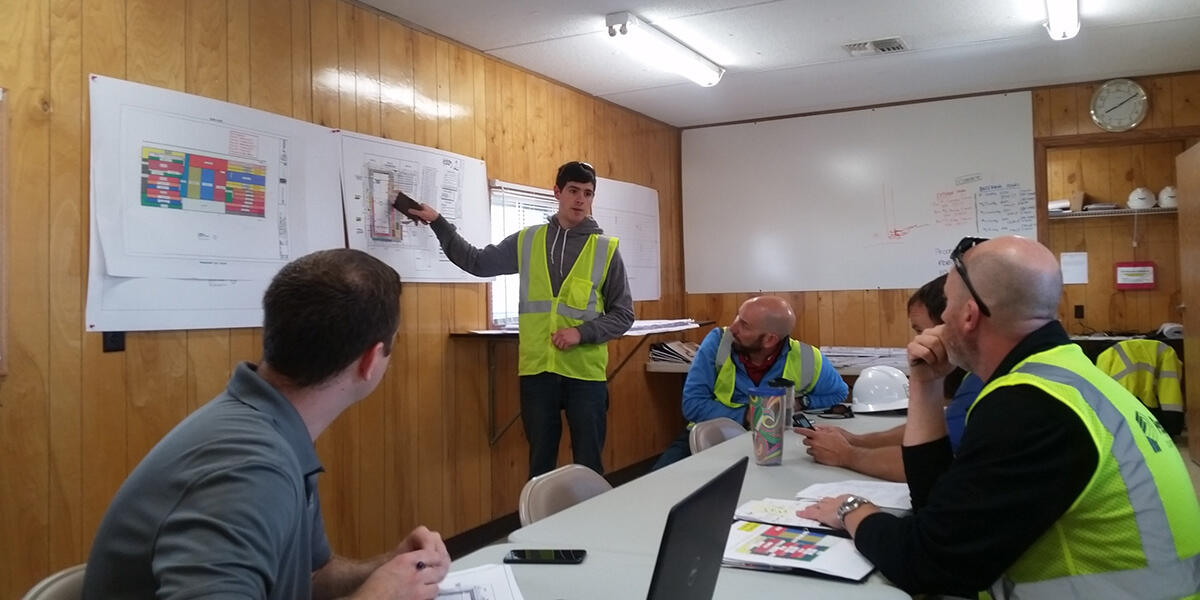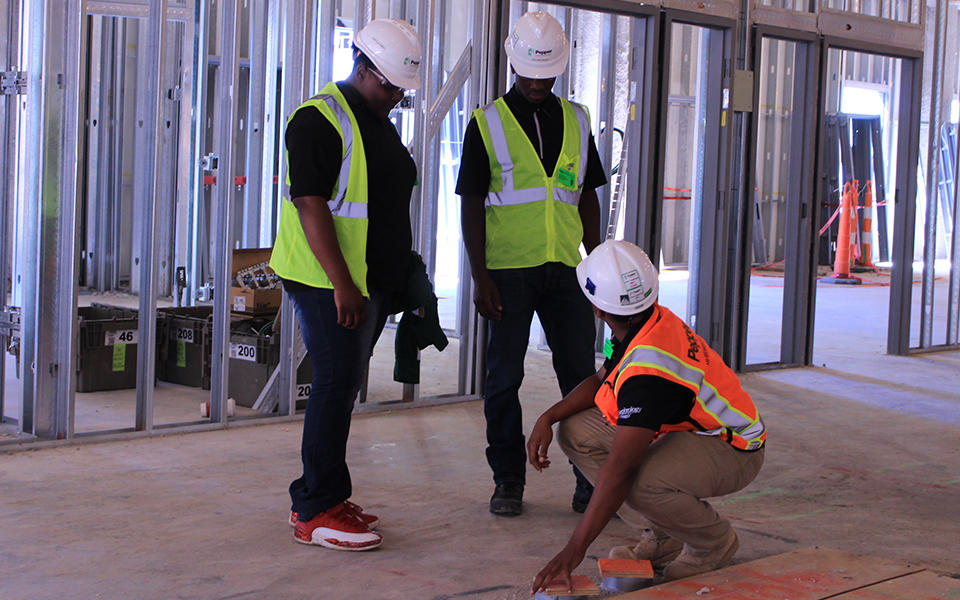About Pepper
It's been a while since most of our project managers were interns, but many of them still remember what it was like. If you're on a larger job with a big team, it can be intimidating to speak up and ask questions. It can also be easy to blend in, but then you may not gain as much as you want from the experience. Some interns are left on their own to sink or swim; others are micromanaged. The ideal internship falls somewhere in between.
Construction companies like to hire interns to see which ones are a good long-term fit. While landing a full-time position is a worthwhile goal, internships should be treated as a long interview process, for both the employer and intern. Both parties learn a lot from the experience. These five tips can help interns gain career-long skills and get the most out of their internship:
01. Write down your internship goals
To consider your internship successful, what five things would you like to accomplish? In the first week of an internship, students should write down their goals an expectations for their time at pepper. It's good to do that early and then go back and reflect on what you wrote down toward the end. Did you accomplish all of your goals? During manager-intern check-ins, revisit the goals list and find ways to make them happen, whether on that job or by observing another project. While many want to see a concrete pour, climb a tower crane or witness steel erection, someone else may want to see site excavation, utility work or application of spray-on fireproofing.
02. Draw the team hierarchy
Interns should do this on the first day. The reason is not just so they can put names with faces and understand who does what. Instead, it illustrates how the team works together and who reports to whom so they get a feel for an individual's motives. It's easy to pick up on people's work preferences, but understanding the lines between team members reveals a little of the "why" behind how they interface with others.
03. Draw the money hierarchy
Trace how the money flows through the project. As an intern, you do not need to understand contracts, but you should understand how the contract structure impacts the project. So when you're sending an email, who do you notify and who do you copy? Understanding who people report to and who controls the money will give you an idea of who has influence and who needs to be included on decisions.
04. Participate in a meeting
As your career progresses, you will be asked to lead meetings on a weekly or daily basis. Public speaking can be intimidating, particularly when talking to a group that has more experience. Giving interns a speaking part in our owner or trade partner meetings has been effective. Since our interns are often responsible for project progress photography, we may ask them to choose one milestone photo and present it at each meetings. It's a great way to engage as part of the team without asking them to lead the conversation. If you are not given the opportunity to speak up in a meeting, ask for one, because like it or not, you'll be speaking in front of others the rest of your career.
05. Seek to learn something every day
Finally, there's the Golden Intern Rule. Interns should learn something new every day. in fact, some project leads may request you call them to ask questions about construction if you feel you haven't learned something new that day. Some have taken the invitation and called almost every day. Often, the questions are technical and related to the work in progress, but it shows how much they care and what drives them. It also opens the door to give our interns a resource to turn to when they would otherwise let questions go unanswered. Whether it's the supervisor on your own project or a trade worker in the field, find someone who can answer your questions – and always make sure you ask.
As you begin your summer internship, if there's one last piece of advice, it's simply to work hard and show initiative. Talk to your manager about maybe keeping a shared document of activities. Not a step-by-step guide telling you what to do, rather something that provides general direction for you to follow. You can add a column for targeted completion dates and another for you to sign off on actual completion. It's to help you manage your own progress. Our interns like it because they can turn to that document instead of asking for the next task to complete. It sets expectations, and helps leadership see who is excelling and how much each individual can take on. It may just influence their recommendations for future full-time candidates.
If you're interested in learning more about Pepper's internships, I encourage you to contact us.




